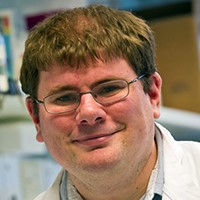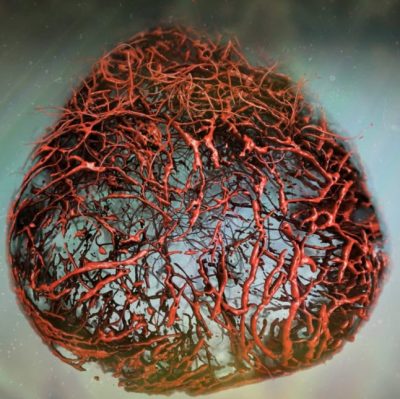Many of the most damaging consequences of diabetes are linked to excess blood sugar and its impact on blood vessels in the body.
Kidney disease, blindness, heart attacks, stroke and the need to amputate lower limbs are often caused by reduced elasticity and narrowing of vasculature, making strategies to protect or repair blood vessels a compelling target for research.
LSI Director Dr. Josef Penninger and Drs. David Long, Luigi Gnudi, and Karen Price in the UK are recipients of a UK-Canada Diabetes Research Team Grant entitled “Bridging the gap to translation by understanding and preventing diabetic vascular complications using human organoid culture” as part of the 100 Years of Insulin initiative.
 The transformative discovery of insulin as a treatment for diabetes has saved millions of lives. Yet diabetes continues to have global impact, affecting nearly 3 million Canadians and 8.8% of the global population. In Canada, treating new cases of diabetes diagnosed between 2012-22 is estimated to cost $15.4 billion, while in the U.K., 10% of the NHS budget is spent on treating diabetes and associated complications.
The transformative discovery of insulin as a treatment for diabetes has saved millions of lives. Yet diabetes continues to have global impact, affecting nearly 3 million Canadians and 8.8% of the global population. In Canada, treating new cases of diabetes diagnosed between 2012-22 is estimated to cost $15.4 billion, while in the U.K., 10% of the NHS budget is spent on treating diabetes and associated complications.
The team grants are intended change this scenario, by supporting world-leading collaborations in accelerating research into mechanisms and translational solutions that will improve the lives of people with diabetes in Canada and the UK. They are funded by the Canadian Institutes of Health Research (CIHR) Institute of Nutrition, Metabolism and Diabetes (INMD), Institute of Infection and Immunity (III) and Institute of Musculoskeletal Health and Arthritis (IMHA), the UK Medical Research Council (MRC) and the UK Economic and Social Research Council (ESRC).
 The Penninger-Long et al. collaboration is addressing one of the key diabetes knowledge gaps identified by the initiative, aiming to elucidate previously undefined mechanisms that control the onset and progression of all types of diabetes mellitus and related complications.
The Penninger-Long et al. collaboration is addressing one of the key diabetes knowledge gaps identified by the initiative, aiming to elucidate previously undefined mechanisms that control the onset and progression of all types of diabetes mellitus and related complications.
In the case of vasculature, studies using mice and cultured cells have identified several molecules that protect blood vessels, but moving these findings from laboratories to humans has been difficult.
Dr. Penninger’s group recently developed a novel method to create human blood vessels from stem cells in the laboratory. When exposed to diabetic conditions, these artificial blood vessels show the same changes and features seen in the blood vessels of diabetic patients. Studying these artificial blood vessels will allow scientists to examine promising findings from mice and cells in a human-like environment before conducting clinical trials with human patients.
The Canada-UK team will assess the potential of two previously identified molecules angiopoietin-2 and apelin to reverse changes caused by high blood sugar in artificial human blood vessels. They will also examine why some diabetic patients do not develop blood vessel-related complications.
Their findings will ultimately lead to the discovery of new treatments for blood vessel complications in diabetes.
Bridging the gap to translation by understanding and preventing diabetes vascular complications using organoid culture
Josef Penninger (Canadian NPI: University of British Columbia)
David Andrew Long (UK NPI: University College London)
Visit “100 Years of Insulin: Featured Research” for more information about these projects
